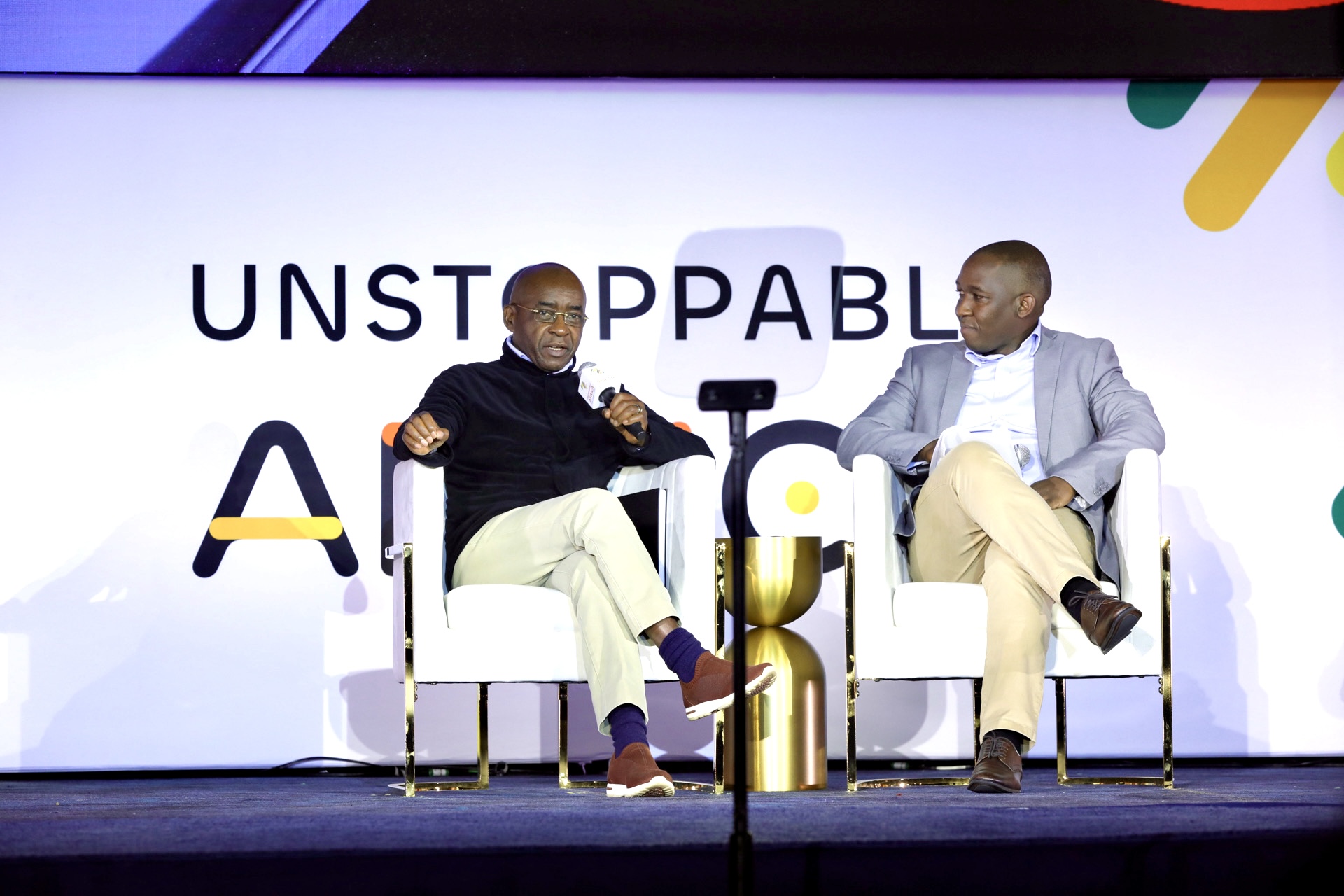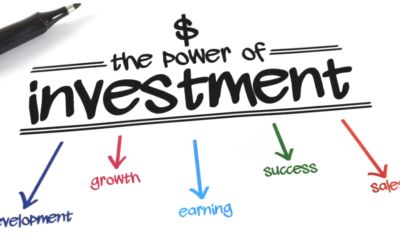Technology
Dr. Omolaraeni Olaosebikan on the use Of AI In Risk Communication

Dr. Omolaraeni Olaosebikan, the CEO of McEnies Global Communications has identified Artificial Intelligence’s (AI) predictive capabilities to be invaluable for risk communication, adding that it has the potential to put forward flawless strategies that can aid disaster prevention and management.
According to this integrated marketing expert, machine learning algorithms now have the foolproof ability to predict potential risks based on historical data and past occurrences. She maintained that this feat allows organizations to proactively address risks before they escalate and communicate with relevant stakeholders in a more informed manner and in the nick of time.
Dr. Omolaraeni dropped these hints during an interactive session with brand and tech reporters on Thursday, February 1, 2024, at her Lagos Office in Magodo GRA off CMD Road.
Recall that Omolaraeni last year won a contract with The Meteorological Office UK (Met Office) to develop improved communications practices on flood crisis information and work out meaningful risk communication strategies to mitigate perennial flooding in Nigeria.
The project is being sponsored by the UK Foreign Commonwealth and Development Office (FCDO) and it is expected to bring together several relevant government agencies, like NIMET, NASRDA, NIHSA, NEMA, etc while also engaging in some desk-based research and consultations.
She said: “Artificial Intelligence (AI) has revolutionized risk communication by enabling organizations to analyze data, predict risks, and communicate with stakeholders more effectively with precision to solutions.
“In recent times, I have been involved in flood management, and natural disaster studies with the MET Office and FCDO which you are aware of and I desire I go steps further to be more involved in ways to help the vulnerable people amongst us. Those who day-to-day live in abject poverty and deprivation because of what natural disasters, pandemics, and other related crises have done to them and the government possibly not even looking to help their needs and preferences.”
The very engaging session took a better part of the female CEO’s time on Thursday even as she professionally responded to how to mitigate social vulnerability through AI-assisted risk communication strategies.
Her words, “Risk communication essentially relies heavily on data analysis to identify potential threats, trends, and patterns. As I’ve said previously, AI-powered tools can process vast amounts of structured and unstructured data from various sources, including social media, news articles, and reports, to uncover valuable insights. By analyzing this data, organizations can gain a better understanding of emerging risks and tailor their communication strategies accordingly.
“AI’s predictive capabilities are invaluable for risk communication. Machine learning algorithms can predict potential risks based on historical data and past occurrences. This foresight allows organizations to proactively address risks before they escalate and communicate with stakeholders in a more informed manner.”
Fielding questions on empowering vulnerable communities with risk communication and AI technology strategies for resilience and safety, the McEnies Global Communications CEO reacted and said:
“AI can seamlessly help to mitigate the risks identified by providing recommendations, actions, and solutions. It can equally use data-driven awareness to suggest the best ways to reduce or eliminate the risk and create safety nets for the target or vulnerable segments of society. The aggregates of insights drawn from this can ultimately help to either enforce policies through government agencies or legislation from the Parliament, or run advocacy programmes to deepen the right message and techniques for the target groups and relevant stakeholders especially during, before, or after emergency situations.”
While stressing on risk communication and AI technology strategies and dose for saving social vulnerability, Omolaraeni gave this submission to the media:
“I’m not here to stir any scare, but the reality is that the fourth industrial revolution is in full swing, bringing with it a wave of technological advancements that have the potential to reshape every aspect of human life across the globe. Artificial Intelligence is at the forefront of this revolution, promising to transform various sectors and drive inclusive growth. In Africa, could the adoption of AI and related technologies accelerate the continent’s development and help to achieve the United Nations Sustainable Development Goals (SDGs)? The answer is Yes!”
“Natural disasters are inherently unpredictable, but their consequences can be mitigated through early intervention and effective preparedness. These events can have devastating economic, social, and environmental impacts. Preventing natural disasters or minimizing their damage is a global imperative. AI, with its ability to process vast amounts of data, analyze patterns, and make real-time predictions, will definitely revolutionize our approach to disaster prevention.
“Before delving into the ways AI can assist in disaster prevention, it’s crucial to understand the nature of these events. Natural disasters are broadly categorized into geological, meteorological, hydrological, and climatological phenomena. Earthquakes, volcanic eruptions, and tsunamis fall under geological disasters, while meteorological disasters include hurricanes, tornadoes, and blizzards. Hydrological disasters involve floods and landslides, and climatological disasters encompass droughts, heatwaves, and wildfires.
“One of the most crucial aspects of disaster prevention is providing early warnings to vulnerable populations. AI-powered systems can process data from various sources, including weather sensors, satellites, and social media, to detect early signs of impending disasters. For example, in the case of hurricanes, AI algorithms can analyze atmospheric data to predict their path and intensity accurately. These predictions enable authorities to issue timely warnings and evacuate individuals at risk-prone areas and saving countless lives”
In the aspect of enhancing social vulnerability with AI Technology and risk communication, she noted; “Data-driven artificial intelligence technologies are progressively transforming the humanitarian field, the use of digital technologies in humanitarian action again should not be seen as a new phenomenon. Yet, contemporary advances in computational power, coupled with the availability of vast amounts of data, have allowed for more widespread use of digital technologies in the humanitarian context.
“The COVID-19 pandemic has further accelerated the trend of using digital technologies to help maintain humanitarian operations. AI is broadly understood as a collection of technologies that combine data, algorithms, and computing power. These technologies based on my understanding consist of software and possibly also hardware systems designed by humans that, given a complex goal, act in the physical or digital dimension by perceiving their environment through data acquisition, interpreting the collected structured or unstructured data, reasoning on the knowledge, or processing the information, derived from this data and deciding the best action to take to achieve the given goal and mitigate against disaster.”
On the need to bridge the gap and explore the intersection of AI technology and risk communication, she said;
“Globally, modern workplaces are undergoing a profound digital transformation, and of course here in Nigeria, we shouldn’t be caught napping. In line with this global shift. We must start to recognize and utilize the unparalleled value of AI’s capabilities. These capabilities bring enhanced operational procedures, heightened productivity upscale success stories, and a growing range of innovative service offerings. As AI systems become increasingly integrated, we must learn to follow the trend, reshaping the foundation of communication in risk and disaster management, know how to predict right, and cater to diverse needs and preferences. This transformation weakens the traditional ties within incumbent financial institutions and paves the way for entirely new operational models.
“AI is reshaping the landscape of risk communication, empowering organizations to analyze data, engage with stakeholders, and respond to crises more effectively. By harnessing the potential of AI and upholding ethical standards, organizations can enhance their risk communication strategies and build stronger relationships with stakeholders in today’s rapidly changing world. As technology continues to evolve, AI’s role in risk communication will only become more significant, making it an indispensable tool for modern risk managers and communication professionals. And for us at McEnies Global Communications we’re moving at the speed of light to meet up with contemporary standards in tandem with global best practices.” She stated.
Technology
Unstoppable Africa 2025: Africa’s AI Ambitions and Digital Future Go Global

Major projects and initiatives that are set to position Africa at the heart of global innovation, notably the expansion of the continent’s AI infrastructure, were announced today at Unstoppable Africa 2025 in New York as CEOs convened to discuss Africa’s place in the global economy. This marks a significant step in enabling the continent’s stakeholders to develop local AI solutions designed to address some of Africa’s most pressing challenges.
Zimbabwean billionaire, Founder and Executive Chairman of Econet Global and Cassava Technologies, Strive Masiyiwa, announced that steps are underway to establish Africa’s first network of AI factories. Powered by NVIDIA GPUs, the facilities will be completed by the end of 2026, setting the stage for homegrown innovation and accelerating Africa’s participation in the global AI economy.
Another announcement came from Meta, presented by Kojo Boakye,Vice President, Public Policy Director for Africa, Middle East & Turkey. The company signalled upcoming investment opportunities in Africa’s digital ecosystem, highlighting its confidence in the continent’s growing tech and AI potential.
These initiatives reflect a shift toward locally led solutions and long-term planning, with a focus on robust systems, adoption of advanced technologies, and capital investment to drive regional integration and global competitiveness.
The second day of Unstoppable Africa 2025, flagship event of the Global Africa Business Initiative (GABI), united business leaders, African heads of state, global investors, and international institutions to accelerate the continent’s economic transformation. New commitments in infrastructure, advanced technologies and investment highlighted growing confidence in Africa’s private sector.
In the financial services sector, the Africa Finance Corporation (AFC) in collaboration with African Pension and Social Security Institutions launched the ‘Africa Savings for Growth’ initiative to explore ways to channel African institutional savings into longer-term investments that support inclusive growth. The continent-wide initiative builds on AFC’s 2025 analysis identifying at least $1.17 trillion in institutional assets across Africa, much of it still allocated to short-term, low-yield instruments.
The Global Africa Business Initiative launched two new GABI Action Pathways focused on digital transformation and healthcare aiming to connect businesses, governments, and innovators working in sectors critical to Africa’s competitiveness and resilience.
The Healthcare Action Pathway aims to improve access to medical services through digital tools, build stronger regional supply chains, attract investment, and support the growth of Africa’s healthcare workforce. The Digital Transformation Action Pathway focuses on upgrading government services, expanding internet access and digital infrastructure, training people for future jobs, helping small businesses with tech and funding, and promoting responsible use of AI and data.
Discussions on Day Two focused on new partnerships, Africa’s digital growth, and the continent’s thriving sports and creative industries, including music and fashion.
The forum concluded by highlighting Ava DuVernay, acclaimed director, screenwriter, producer, and founder of ARRAY; 15 year-old Ellyanne Wanjiku Chlystun-Githae, Climate & Health Champion at Seeds for Leadership; Mpumelelo Tevin Mhlongo, Paralympic champion and triple world record holder; Marcus Samuelsson, chef, restaurateur, and author; and international singer-songwriter, Tiwa Savage, who also performed at the end of the event. Their inspiring contributions echoed the forum’s central message of empowerment, innovation, and sustainable progress across the continent.
Closing the forum, Deputy Secretary-General of the United Nations, Amina J. Mohammed said, “When people say Africa is resilient, they’ve got a different definition to resilience than we have. Africa’s resilience is about how we build on what we have and how we strengthen our markets, our economies and our democracies and I believe that the values and principles that we all hold are important. Unstoppable Africa is a space to remind ourselves that this is who we are, it is our narrative, on our terms that we go forth.”
Unstoppable Africa is the leading African business forum held outside the continent. Hosted by United Nations Secretary General António Guterres and H.E. Mahmoud Ali Youssouf, Chairperson of the African Union, the event took place just ahead of the 80th session of the UN General Assembly in New York. Unstoppable Africa aims to accelerate the continent’s economic transformation and empower Africa to take a leading role in shaping the markets of the future.
Technology
Kaspersky warns travelers: AI-powered attacks are targeting hotel guests

Between June and August 2025, Kaspersky’s Global Research and Analysis Team (GReAT) discovered a new wave of cyberattacks by a threat group called RevengeHotels, which targets hotels to gain access to guests’ payment information. The group has been operating since 2015 and has since upgraded its methods. The threat actor is now using Artificial Intelligence (AI) to make their attacks more effective and reach additional regions. Analysis shows that many of the new malicious programs used in these attacks contain code likely generated with AI, making them more sophisticated and harder to detect.
While hotels in Brazil have been the main target to date, such cyberattacks have also been reported in other countries around the globe. And considering that countries in Africa, including South Africa and Kenya, are popular tourist destinations, and Nigeria a popular business travel destination, it is important to consider that no country or hotel is immune to falling victim.
How the attacks work
The threat actor sends phishing emails directly to hotel staff, often disguised as requests for reservation or job applications. Once a hotel employee interacts with these emails, malware called VenomRAT is installed on the hotel’s systems, giving attackers access to guests’ payment data and other sensitive information. The emails often look convincing, coming from legitimate-looking websites.
“Сybercriminals are increasingly using AI to create new tools and make their attacks more effective. This means that even familiar schemes, like phishing emails, are becoming harder to spot for a common user. For hotel guests, this translates into higher risks of card and personal data theft, even when you trust well-known hotels,” comments Lisandro Ubiedo, expert at Kaspersky’s Global Research and Analysis Team.
To stay safe, Kaspersky recommends:
- Even if an email seems friendly, treat links and attachments with care. To protect your company, use solutions from the Kaspersky Next product line that provide real-time protection, threat visibility, investigation and response capabilities of EDR and XDR for organisations of any size and in any industry.
- Cybercriminals often distribute fake email messages mimicking email notifications from an online store or a bank, luring a user to click on a malicious link and distribute malware. If attackers are specifically targeting your organisation, the email text may be more customised, mimicking services or scenarios familiar to your company. With that in mind, fine-tune your antispam settings and never open attachments sent by an unknown sender.
- Try not to open unexpected files sent by you massively. They may be ransomware or even spyware, even attachments from official-looking emails.
Technology
Nigerian Risk Expert Unveils NaijaShield™, Africa’s First AI-Powered Stress Testing Engine

Nigerian-born financial risk specialist Oyindamola Ogunruku, currently a senior market risk analyst at Goldman Sachs, has developed a groundbreaking invention called NaijaShield™, an artificial intelligence-driven stress testing engine designed to transform how banks and regulators in frontier economies anticipate and manage financial shocks.
Traditional stress testing models were built for the stable conditions of developed markets and have proven inadequate for economies like Nigeria, where inflation, volatile exchange rates, and abrupt policy shifts create unique vulnerabilities. NaijaShield™ tackles this problem by combining machine learning, regulatory alignment, and predictive analytics to create a dynamic system that can simulate real-world crises in real time. The invention uses a risk detection engine to process market data, a simulator to model events such as currency crashes or oil price slumps, a scorecard generator to highlight exposures, and a regulatory module that syncs results with Central Bank of Nigeria requirements. Its final layer is a decision dashboard that gives auditors, executives, and compliance teams actionable insights at a glance.
Ogunruku describes NaijaShield™ as an intelligent early warning system that can help African banks strengthen resilience, prevent systemic risks, and build investor confidence. She has urged Nigerian regulators to establish sandbox environments where tools like NaijaShield™ can be tested safely before full deployment, noting that its impact could extend beyond Nigeria to other frontier markets with similar instability.
Her career reflects the combination of local insight and global expertise that makes this innovation possible. From designing adaptive risk scorecards at fintech firms in Lagos to managing market risk oversight at Goldman Sachs in the United States, she has consistently demonstrated an ability to bridge advanced analytics with real-world banking challenges. With peer-reviewed publications on AI in financial stress testing, anomaly detection, and green fintech, the unveiling of NaijaShield™ underscores her standing as a pioneer at the intersection of artificial intelligence, finance, and regulatory innovation.
“The future of financial oversight is not just digital — it is intelligent,” Ogunruku said. “NaijaShield™ proves that frontier markets like Nigeria can lead in developing the tools that make global finance safer.”
-

 Oil and Gas3 days ago
Oil and Gas3 days agoTotalEnergies, Chevron Push for Faster Permits, Better Seismic Data in Africa
-

 Afripreneur21 hours ago
Afripreneur21 hours agoRevolutionizing Cross-Border Payments in Africa: An Exclusive Interview with Onyinye Olisah
-

 Energy3 days ago
Energy3 days agoUnited States (U.S.) Political Will, African Reforms Signal New Era for Energy Investment















